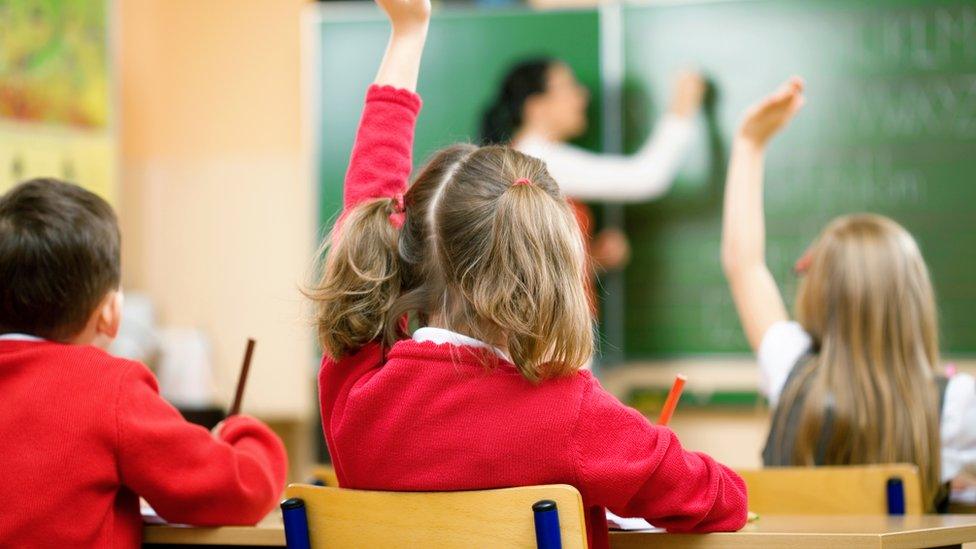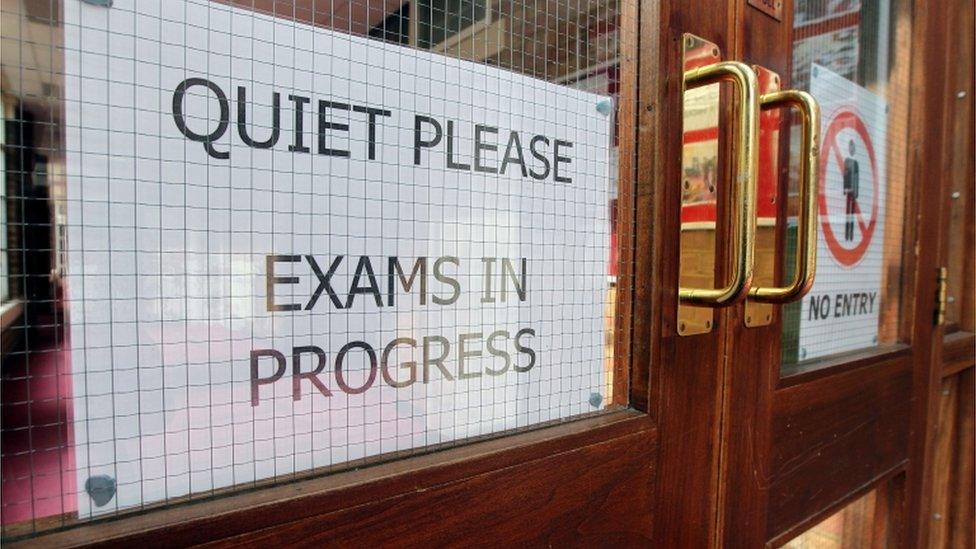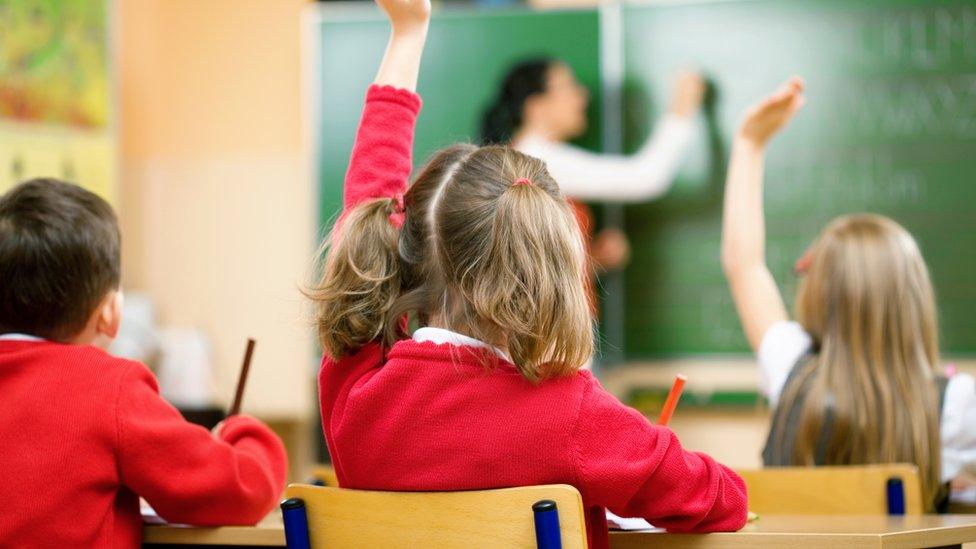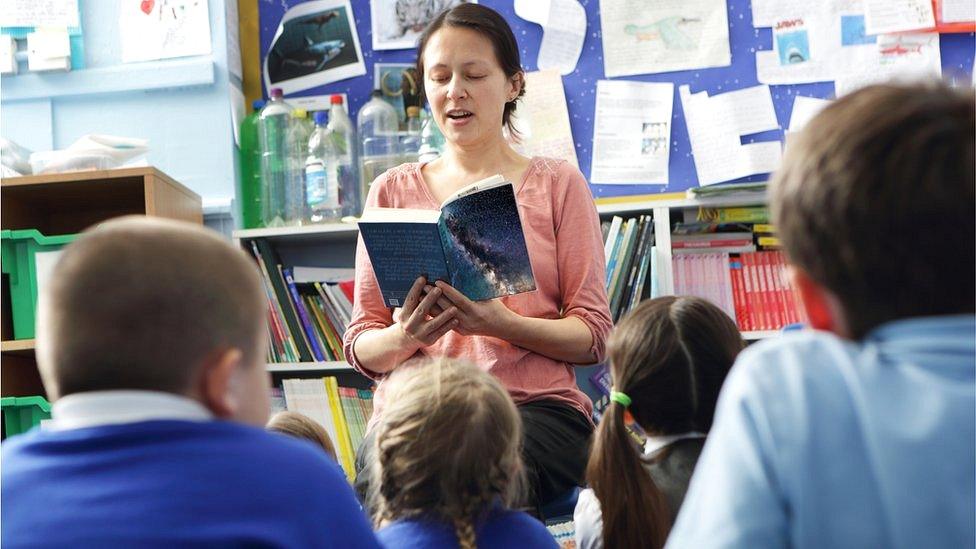Teaching union NASUWT to take industrial action from 9 May
- Published
- comments

The NASUWT is one of the largest teaching unions in Northern Ireland.
The NASUWT teaching union is to begin action short of strike in schools in Northern Ireland from 9 May.
The action comes after teaching unions in Northern Ireland rejected a pay offer from the teaching employers.
The NASUWT action will affect things like covering for other staff, overseeing exams, lesson plans, inspections and school meetings.
The move was detailed in a letter to school principals seen by BBC News NI.
It follows a ballot of NASUWT members where more than 80% of those who took part voted for strike action and almost all voted for action short of strike.
Separately the NAHT union - which represents many school leaders - has warned that the NASUWT action "will seriously curtail activities and development across our schools".
In an open letter to the permanent secretary at the Department of Education (DE), the NAHT said "a fair pay settlement must be pursued with urgency".
They also said it was it was "unsafe, unreasonable and impossible" to expect school leaders to take on extra work to keep schools unaffected.
Teachers previously received a 2% pay rise for 2019/20 and 2% again in 2020/21.
But the unions rejected as "inadequate" a two-year pay offer for the years from 2021 to 2023.

The NASUWT say members will not invigilate public examinations
The details of the resulting NASUWT action short of strike were contained in a letter sent to school principals.
It lists 20 different actions and duties that NASUWT teachers will not carry out in schools from Monday 9 May.
Among those are - they will not cooperate with any school inspections or "attend more than one parents' evening".
They will also "not attend more than one meeting each month outside pupil session times" or "undertake invigilation of public examinations".
The NASUWT also said teachers would not respond to work text messages or emails outside school hours or during lunch.
As part of the action, teachers will also not collect money from pupils for school activities, carry out bulk photocopying or cover for staff absence apart from under specific circumstances.
Extra-curricular activities could also be affected, but NASUWT said teachers could still organise sports teams, music or drama productions and other clubs if they had volunteered to do so.
The NASUWT is one of the largest teaching unions in Northern Ireland.
The other unions - INTO, UTU, NEU and NAHT - have also called for "fair pay for teachers" but have not yet announced what action they will take if a pay deal is not agreed.
The Department of Education has previously warned it is facing significant budget pressures in 2022/23.
In a separate dispute, members of the Unite union in the Education Authority (EA), local councils and the Housing Executive are on strike over what they have said is an unacceptable 1.75% pay offer.
'Minimise disruption'
Frances Meehan, of the Education Authority, said special needs schools were being particularly affected by the industrial action.
"We are working with those schools to try and minimise disruption and we have put a number of contingency measures in place," she said.
"That disruption can be anything from the child's transport not being available to them, or, indeed, we are aware that two special school establishments have moved to blended or online learning."
She said children who have profound special needs have particular challenges in relation to getting transport.
"Some of them will have medical conditions where, if their normal driver is not available, another driver who would be taking them would need to be trained in the medical equipment they may need en route to school," she said.
"We are in contact with and are engaging with our trade union colleagues to try and mitigate the impact that this is having on our special education needs schools and sector.
"Up until now there hasn't been a particularly positive response, but we continue to engage with them."
Related topics
- Published16 February 2022

- Published16 February 2021

- Published4 November 2021
